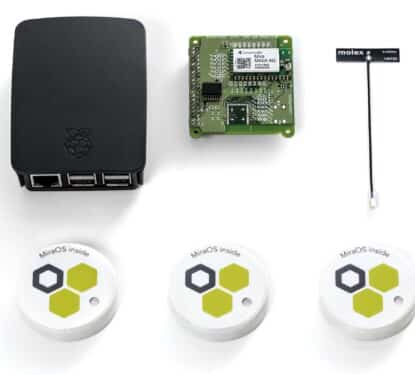It wasn’t that long ago that we were only really talking about Tesla in the stationary energy storage space. There were other firms with similar offerings but Tesla was the most high profile and media hungry. ABB, GE, LG, Panasonic and Samsung all joined the market, global aerospace, defence and security firm Lockheed Martin also moved into energy storage. Now it seems automakers have got to grips with the Tesla business model and are entering the race.
Tesla CEO Elon Musk launched the stationary battery chapter for his company back in April 2015 claiming, “our goal is to fundamentally change the way the world uses energy.” The serial entrepreneur made stackable batteries with sleek designs that created a market where there was none. Solar firms, like Musk’s own SolarCity, began offering solar + storage systems that theoretically offered homeowners energy independence.
Later that year, Daimler’s Mercedes Benz launched it’s 2.5 kWh, stackable to 20 kWh, energy storage system for residential, commercial or utility applications. Then in November 2016 announced the establishment of a US stationary energy storage unit, ‘Mercedes-Benz Energy Americas.’
Meanwhile, in May 2016, Nissan unveiled their xStorage system, made from the recycled batteries of their Leaf electric car model. Recently the firm launched a program that offers UK customers an integrated package of solar panels and a battery storage system designed to maximize the use of renewable energy.
Then, in June 2016, BMW announced it will be repurposing their i3 model car batteries into stationary storage systems. When the i3 battery pack is replaced, consumers will be able to transfer the batteries to a charging module designed by Beck. The BMW and Beck branded system provides electricity storage for homeowners and business-owners alike.
Just this month Audi has joined the energy storage party and taken things a step further with it’s Audi Smart Energy Network. Their solar + storage system has the unique feature that it also interacts with the power grid. Over a built-in communication interface, all systems are interconnected to form a virtual power plant, and thereby constitute a smart grid.
“We are looking at electric mobility in the context of an overall energy supply system that is increasingly based on renewables. We are playing a pioneering role with the prequalification of the balancing-power market – enabling producers to feed power into the grid, as part of the pilot project. That is now for the first time also possible down at the level of individual households, which helps balance the entire power grid,” remarked Dr. Hagen Seifert, Head of Sustainable Product Concepts at Audi.

If you make battery technology for cars it makes good business sense to expand that offering to the buildings market. However, there is also a regulation that is encouraging car firms to steer in that direction. Once an electric vehicle has used a certain percentage of a lithium-ion battery's recharge cycles, it becomes illegal to keep it inside a car. The battery does, however, retain enough of its power to act as a solar energy storage unit for households, or stackable in bigger buildings.
The energy storage market is not all about automakers though. ABB, GE, LG, Panasonic and Samsung have all been developing their battery offerings in recent years to add to what is becoming a very competitive and dynamic market. Global aerospace, defence and security firm Lockheed Martin has had a lithium-ion battery offering on the market for sometime but created new buzz this month when they announced their new flow battery, set for release later this year.
Based on technology developed by Lockheed’s MIT spin-off acquisition, Sun Catalytix, flow batteries hold more promise in the long-term compared to lithium-ion. “We’ve done a lot of education with customers about lifetime cost, not just looking at upfront cost. You have to take a 20-30 year view when comparing lithium and flow. Lithium batteries need replaced perhaps every seven years so you need to make sure you are comparing apples to apples,” said John Battaglini director of business development for Lockheed Martin Energy.
Early January 2018 saw the launch of Fluence, an energy storage technology and services company jointly owned by industry giants Siemens and The AES Corporation. The firm already announced that it will be the supplier of the world’s largest lithium-ion battery-based storage project, a 100 MW/400 MWh installation that will be part of AES’ Alamitos power center in Long Beach, California.
Then just last week, Stem Inc., a leader in artificial intelligence (AI) powered energy storage, announced the first close of its Series D financing with an impressive $80 million investment from a group of leading technology investors. In 2017, the firm was operating or constructing over 1,100 sites, with an average system size of 500 kWh. Over the course of the year, they commissioned a new energy storage system on average every two days.
We initially spoke about energy storage as the potential final piece of the distributed energy puzzle. The technology has gone from strength to strength, and in doing so has driven down price to levels that could see mass market adoption, especially in areas with higher electricity rates or favorable policies.
While more work must be done by these firms, the fleet of automakers and start-ups joining the fray is quickly turning energy storage into a mainstream technology.
[contact-form-7 id="3204" title="memoori-newsletter"]



